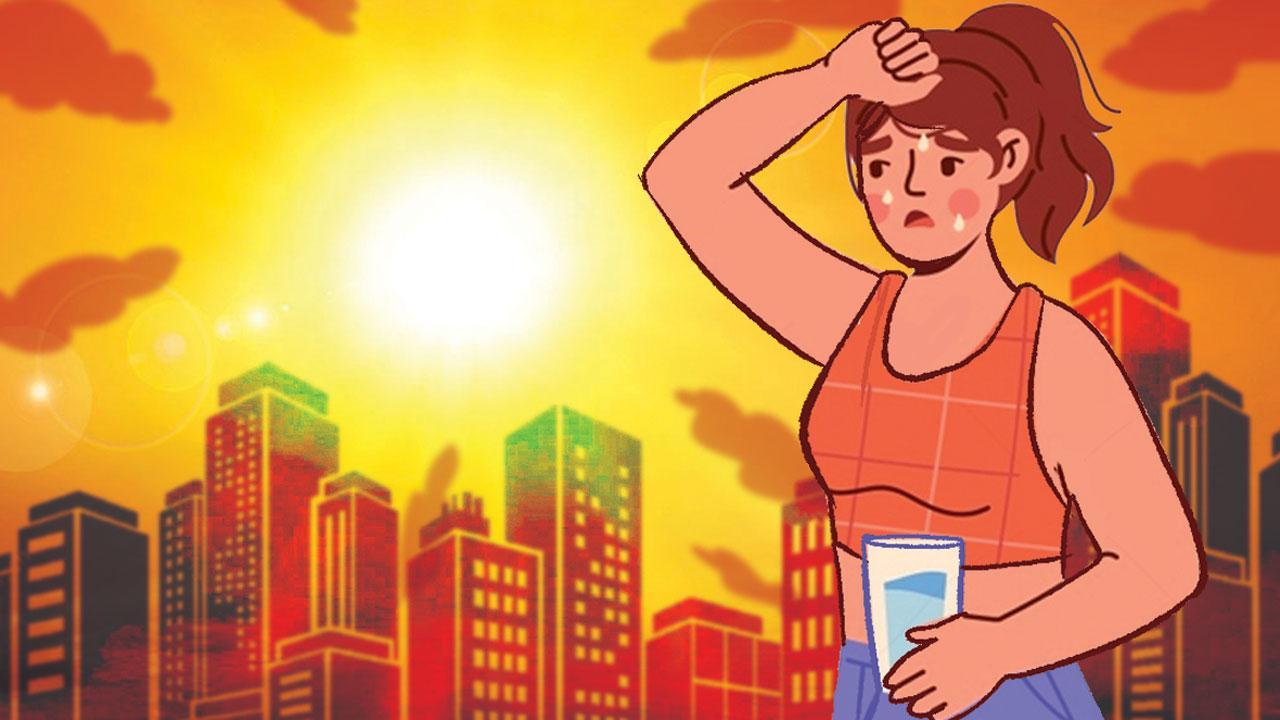Any day now, we are told. A meditative patience is called for, but Americans have strangely not yet invented hot meditation.

Illustration/Uday Mohite
![]() In Bombay, we are stewing on that thin line between giving up the ghost and keeping hope alive. Yaniki, the fortnight between summer and monsoon.
In Bombay, we are stewing on that thin line between giving up the ghost and keeping hope alive. Yaniki, the fortnight between summer and monsoon.
ADVERTISEMENT
Summer has cooked and booked us. Alphonsos have ceased to console. Images of concave maidens in mulmul, trailing mogras and gravely eating melon in cool, dark havelis no longer evokes vintage summer nostalgia, only hatred. The alleged sensualities of summer have given way to the grim truth of sweat. We are miserably, restlessly waiting for the rains. Any day now, we are told. A meditative patience is called for, but Americans have strangely not yet invented hot meditation.
Of course, we Bombayvasis know these cusps, we have so many of them. There is the waiting on platform five for the fast train, which is announced as approaching even as slow train upon slow train goes by on platform three. Some stand on that no-man’s-land between slow and fast called the over-bridge wanting to do chance pe dance and go wherever it comes, but many of us stand leaning over the tracks in tense, hopeful apprehension of the rain, mera matlab hai train. We wait the same way for an Uber driver to be found, for the air to clear, for a government to change—but only the climate does. Cusp ki kasam, resilient hain hum. When the water in taps is boiling hot we gamely consider it a way to save gas. This is what creates the phrase, bechara bahut accha hai.
Even as New York is going through a New Delhi phase, here each summer feels the hottest ever. Increasingly, that is, as young friends like to say, literally true. This is the latest the rains have been since 2009, but they’re coming, they’re coming, like the fast train. Meanwhile, schools in the North have announced that they have extended their summer holidays, because the heat wave is so bad students can’t study and teachers can’t teach.
On Wednesday, the Ministry of Education issued a set of guidelines as long as a Delhi bus queue on how to continue classes in the heatwave: Sachets of ORS (salt and sugar solution) to treat mild heat-stroke should be readily available in the schools. A first aid kit should be available in the bus/van. Parents should be sensitised to pick up the students themselves, to avoid crowding in public transport.
School hai ki trip to Everest base camp? Who is the parent they imagine “sensitising”— one who doesn’t have to take public transport (or go to work)? The reality of government schools is over-crowding, poor ventilation, lack of water and toilets. There is so much to set students back. Natural calamities—heat waves, pandemics—show up the truth of our structures which render the poor ever more vulnerable. The summers get hotter, but over the years summer holidays get shorter. A long fallow summer break is rejected as rank indulgence, because we can only imagine people in service to systems, not the other way round. In 2022 the Delhi government declared only a 15-day summer break to make up for time lost to lockdowns. We will burn, but we won’t reimagine education. Quite like cities will burn because we cannot reimagine politics (maybe Nature’s just copying us). What we wouldn’t do for a different kind of climate change, cusp ki kasam.
Paromita Vohra is an award-winning Mumbai-based filmmaker, writer and curator working with fiction and non-fiction. Reach her at paromita.vohra@mid-day.com
 Subscribe today by clicking the link and stay updated with the latest news!" Click here!
Subscribe today by clicking the link and stay updated with the latest news!" Click here!







